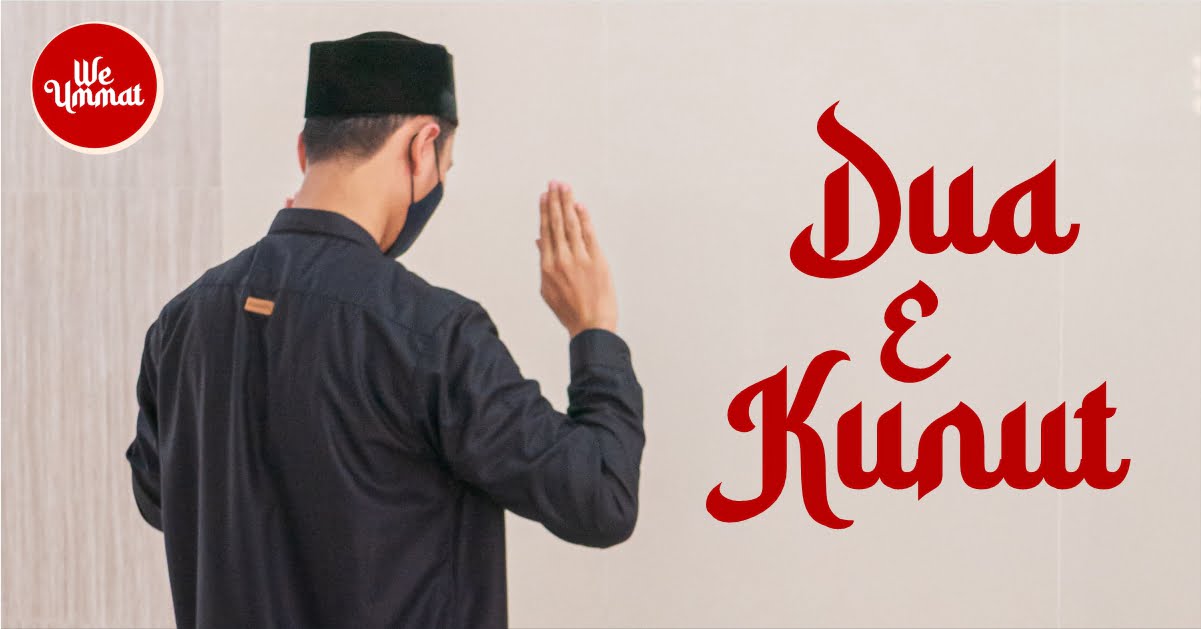Introduction
Dua e Qunoot is a solicitation that’s recited during the last third of the darkness prayers in the Islamic faith. The word “ Qunoot ” literally means “ solicitation ” or “ incantation ”, and is derived from the Arabic word “ Qanata ”, which means “ to stand ”. In the environment of Dua e Qunoot, the act of standing refers to the physical posture of the suppliant during the prayer, as they stand before Allah in a state of modesty and submission.
The content of Dua e Qunoot varies depending on the specific traditions and seminaries of study within Islam. In general, Dua-e-Qunoot is a prayer that seeks the guidance, protection, and mercy of Allah, and is frequently recited during times of difficulty, adversity, and torture.

What is Dua e Qunoot?
Arabic Narrated Al-Hasan Ibn Ali: اللَّهُمَّ اهْدِنِي فِيمَنْ هَدَيْتَ وَعَافِنِي فِيمَنْ عَافَيْتَ وَتَوَلَّنِي فِيمَنْ تَوَلَّيْتَ وَبَارِكْ لِي فِيمَا أَعْطَيْتَ وَقِنِي شَرَّ مَاقَضَيْتَ فَإِنَّكَ تَقْضِي وَلاَ يُقْضَى عَلَيْكَ وَإِنَّهُ لاَ يَذِلُّ مَنْ وَالَيْتَ تَبَارَكْتَ رَبَّنَا وَتَعَالَيْتَ Allahumma ihdini feeman hadayt, wa afini fiman afait, wa tawallani fiman tawallait, wa barik Li fima atait, wa qini sharra ma qadait, fa Innaka taqdi wa la yuqda Alaik, wa innahu la yadhillu man walait, tabarakta Rabbana wa ta’alait. English Translation “O Allah guide me among those You have guided, pardon me among those You have pardoned, befriend me among those You have befriended, bless me in what You have granted, and save me from the wrong that You ordered. Indeed You decree, and none can pass decree, and none can pass decree upon You, indeed he's not lowered whom You have befriended, blessed are You our Lord and Exalted ” ( Sunan-Abi Dawud: 1425; Jami At Tirmidhi 464; Sunan Ibne Maja 1178 )
History Of Dua E Qunoot In Islam
Dua-e- Qunoot is a supplication recited during the Witr prayer in Islam. The history of Dua-e- Qunoot is closely linked to the Prophet Muhammad ( peace be upon him) and the early Muslim community. The most widely accepted view is that it was introduced by the Prophet Muhammad (peace be upon him) in response to a difficult situation faced by the Muslims. The Prophet Muhammad (peace be upon him) started reciting Dua-e- Qunoot during the Witr prayer after the revelation of Surah al-Fil, which recounts the story of the miraculous victory of the Muslims over the army of the elephant that was sent to destroy the Kaaba in Mecca.
This victory was seen as a sign of Allah’s protection and support for the Muslims, and the Dua-e- Qunoot was recited as a way of expressing gratitude and seeking further help and guidance from Allah. The Prophet Muhammad (peace be upon him) introduced Dua-e- Qunoot during a time of hardship and persecution faced by the Muslims, when they were in need of divine assistance and protection. The Dua-e- Qunoot was seen as a way of strengthening their faith and seeking Allah’s help in their struggles.
The practice of reciting Dua-e- Qunoot during the Witr prayer has been transmitted through various chains of narrations and is considered a sunnah (recommended practice) by many scholars. The supplication includes praises and glorification of Allah, seeking His forgiveness, and asking for His mercy and guidance.
There are also several authentic hadiths that mention the Prophet Muhammad (peace be upon him) reciting Dua-e- Qunoot during the Witr prayer.
Narrated’ Abdullah bin’ Umar The Prophet said,
" Night prayer is offered as two Rakat followed by two Rakat and so on, and if you want to finish it, supplicate only one Raka which will be Witr for all the former Rakat." Al- Qasim said," Since we attained the age of puberty we've seen some people offering a three- Rakat prayer as Witr and all that's admissible. I hope there will be no detriment to it." ( Sahih Bukhari:993)
Significance And Benefits of Dua E Qunoot
Dua-e-Qunoot is an important part of the Islamic tradition and is considered to be an important form of solicitation and devotion to Allah. The act of reciting Dua-e- Qunoot is seen as a way for Muslims to connect with their Creator, and to seek His guidance and protection in their diurnal lives. One of the crucial reasons for the significance of Dua-e-Qunoot is its association with the Prophet Muhammad( peace be upon him).
The Prophet Muhammad( peace be upon him) himself used to recite Dua-e-Qunoot during his darkness prayers and encouraged his companions to do the same. This has given the solicitation a special significance in the Islamic tradition and has made it a extensively- rehearsed form of devotion among Muslims.
There are numerous benefits of reciting Dua Qunoot in Islam. Some of the key benefits are:
Strengthening of Faith:
Reciting Dua-e-Qunoot helps strengthen a Muslim’s faith in Allah and reinforces the belief that Allah is the ultimate source of help and guidance.
Expression of Gratitude:
Dua-e-Qunoot is also an expression of gratitude to Allah for all His blessings, including the gift of Islam and the ability to perform acts of worship.
Protection from Evil:
Dua-e-Qunoot seeks Allah’s protection from all forms of evil, including physical and spiritual harm, and reinforces the belief that only Allah can protect us from harm.
Seeking Forgiveness:
Dua-e-Qunoot also seeks Allah’s forgiveness for sins and mistakes committed knowingly or unknowingly, and reinforces the belief in the importance of seeking forgiveness from Allah.
Increasing Humility:
Reciting Dua-e-Qunoot requires Muslims to bow their heads and humble themselves before Allah, which can help in developing a more humble and submissive attitude towards Allah.
Unity:
Reciting Dua-e-Qunoot during congregational prayers can help create a sense of unity and solidarity among Muslims, as they join together in seeking Allah’s help and guidance.
Consolation:
Dua-e-Qunoot can also provide comfort and solace during difficult times, as it reinforces the belief that Allah is always with us and is the ultimate source of comfort and guidance.
Narrated’ Aisha :
“The Prophet(S.A.W) used to offer his night prayer while I was sleeping across in his bed. Whenever he intended to offer the Witr prayer, he used to wake me up and I would offer the Witr prayer too ” (Sahih Bukhari :997)
How To Make the Utmost Of Dua-E-Qunoot
To make the most of Dua Qunoot in Islam, one can follow these guidelines:
Understand the meaning of Dua E Qunoot:
It is important to understand the meaning of the words being recited in Dua-e-Qunoot. This will help in gaining a deeper appreciation of the supplication and its significance.
Recite with sincerity and humility:
Dua-e-Qunoot should be recited with sincerity and humility, recognizing that Allah is the only one who can grant our requests and answer our prayers.
Focus on the purpose of the supplication:
Dua-e-Qunoot seeks Allah’s protection, guidance, forgiveness, and blessings. One should focus on the purpose of the supplication and make heartfelt requests to Allah for whatever one needs.
Recite with proper pronunciation and intonation:
It is important to recite Dua-e- Qunoot with proper pronunciation and intonation, as this will enhance the beauty and effectiveness of the supplication.
Repeat as necessary:
Dua Qunoot can be repeated as necessary, depending on the situation and the need. One can recite it during any prayer, but it is particularly recommended to recite it during the Witr prayer.
Follow up with action:
After reciting Dua Qunoot, it is important to follow up with action, whether it is making a sincere effort to change oneself or taking practical steps to achieve one’s goals. This will demonstrate one’s sincerity and commitment to the supplication.
In summary, to make the most of Dua Qunoot in Islam, one should understand its meaning, recite it with sincerity and humility, focus on its purpose, recite it with proper pronunciation and intonation, repeat as necessary, and follow up with action.
Narrated ‘Aisha:
“ Allah's Apostle offered Witr prayer at different nights at colorful hours extending( from the' Isha' prayer) up to the last hour of the night. ” (Sahih Bukhari:996)
What To Read Instead Of Dua E Qunoot
If for any reason one is unable to recite Dua Qunoot during the Witr prayer, there are several options that can be read instead, depending on one’s preference and the situation. Here are some alternatives:
Reciting any other supplication or du’a:
Muslims are encouraged to recite any supplication or du’a of their choice during the Witr prayer, as it is a time when Allah is most responsive to prayers.
Reciting Surah Al-Ikhlas (Chapter 112):
This is a short surah that is easy to memorize and can be recited in place of Dua Qunoot during the Witr prayer.
Reciting Surah Al-Falaq and Surah An-Nas (Chapters 113 and 114):
These two surahs are known as the Mu’awwidhatayn (the two protectors) and are frequently recited for protection against evil and harm.
Reciting the Ayatul Kursi (Verse 255 of Surah Al-Baqarah):
This verse is considered one of the most powerful verses in the Quran and is often recited for protection and guidance.
Conclusion
In conclusion, the history of Dua-e- Qunoot in Islam is linked to the Prophet Muhammad (peace be upon him) and the early Muslim community, who used it as a means of seeking Allah’s help and guidance in times of need. The supplication is still recited by Muslims today, as a way of expressing their faith and seeking Allah’s mercy and forgiveness. reciting Dua-e- Qunoot is a powerful act of worship that can help strengthen faith, seek Allah’s forgiveness and protection, increase humility, promote unity, and provide comfort and consolation during difficult times.
- What are the Rulings for Child Marriage In Islamic law | Quran and sahih Hadees
- Theological Overlap: Similarities between Christianity and Islam
- Top 25+ Islamic Quotes from Quran and Sahih Hadees : Inspiring Insights for Spiritual Growth
FAQ
Can we recite Surah Ikhlas rather than Dua-e- Qunoot?
The Witr prayer is a desirable Sunnah and the solicitation of Qunoot is a desirable Sunnah as well and not an obligation. Reciting chapter Al- Ikhlaas( i.e. Quran 112) three times in Qunoot rather than soliciting is a religious invention.
Is Dua-e- Qunoot mandatory in witr?
Qunoot is Sunnah. Grounded on this, if a worshiper omits Qunoot, his prayer is still valid. It is important to remember that reciting Dua-e- Qunoot during the Witr prayer is a recommended practice but not obligatory, and there are many other ways to seek Allah’s guidance and blessings in one’s prayers.
Is it Mandatory to raise Hands in Qunoot?
It is legislated to raise the hands at the beginning of Qunoot –like raising them for starting the prayer –and then to put them down.
Can Witr Salat be replicated without Dua-e- Qunoot?
Qunoot is wajib in Witr salat. .However, he’ll have to do Sajda Sahw, If someone forgets to recite Qunoot during Witr Namaz. Only Allah knows best.

1 thought on “Unlocking the Secrets of Dua e Qunoot: The Power and Significance of This Essential Supplication for Muslims”